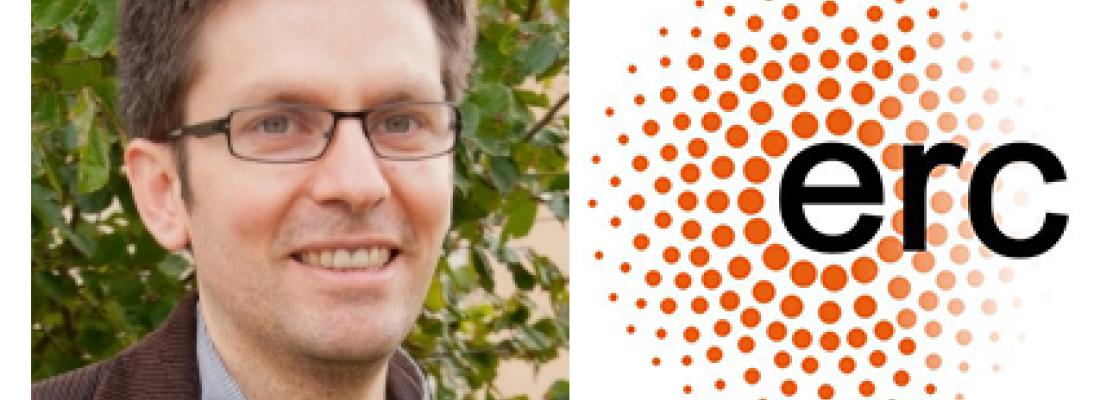Agroecology Reading time 3 min
Two ERC grants for Olivier Hamant's team, for the study of shape acquisition in plants
Published on 22 April 2021

The MUSIX project
Olivier Hamant, INRAE Research Director at the Plant Reproduction and Development Laboratory (1) explains the objectives of the MUSIX Multiscale mechanical signaling in plants project:
“During development, living organisms change in shape and therefore also in structure. The associated mechanical stresses affect cell behavior and thus development. Plants are ideal systems to study the implications of force perception in development because their mechanics are simpler: plant cells are subjected to strong hydraulic pressure, which their walls resist.
In this project, we propose a multi-scale approach that looks at the structure and molecular dynamics of the elements of the internal skeleton of the cell, including the integration of mechanical conflicts between neighboring cells growing at different speeds. Our goal is to understand how cells incorporate these mechanical signals to create plant organs in reproducible shapes.
The main technical breakthrough of MUSIX is the introduction of a new high-throughput single cell system in which the cell wall is replaced by a synthetic framework of controllable geometry, chemistry and mechanics. This work has important implications beyond plant science, such as cell signaling (how cells perceive their environment), self-perception (how organs perceive and monitor their own shape and growth), compensation (how organs handle growth-related mechanical conflicts), and robustness (how tissues handle fluctuations in growth)."
Olivier Hamant was also awarded an ERC "Consolidator Grant" in 2013. He also received the INRAE Young Researcher Award in 2012 (read the article).
The EDGE-CAM project
Olivier Hamant’s team welcomes Charlotte Kirchhelle as a research fellow on 1 September, 2021. Charlotte Kirchhelle is the recipient of an ERC Starting Grant at the University of Oxford on the EDGE-CAM project: Edge-based mechanisms coordinating cell wall assembly during plant morphogenesis. She explains the objectives of the project:
“A central question in biology is how organisms robustly produce organ shapes, which requires the integration of biochemical and mechanical signals across multiple scales in space and time. In plants, morphogenesis is driven by the rigid cell wall, which fixes the cells in their position.
Based on our recent finding that a trafficking route directed to cell edges is essential for cell wall assembly and directional growth at the cell and organ scale, we suggest that organogenesis is controlled by a signaling module at cell edges that integrates cell wall feedback.
The project will test this hypothesis. It will also identify other components of the signaling module at the molecular level, functionally characterise trafficking pathways at the cellular level, and analyze how robust growth emerges from edge-based feedback at the organ level, thus providing a multi-scale mechanistic model of morphogenesis in plants.
(1) UMR ENS de Lyon / Université Claude Bernard Lyon 1 / INRAE / Inria / CNRS.
The ERC (European Research Council) programme funds scientific excellence at the frontiers of knowledge. It is an “open” scientific programme dedicated to exploratory research, for which the only selection criterion is scientific excellence.
Advanced Grants allow established scientists to propose a topic that diverges from their research activities, while remaining active at the scientific level. All established researchers who are recognized as exceptional leaders and who are conducting an exploratory research project are eligible. Applicants must demonstrate an excellent track record of research and publications over the past ten years. The duration of the grant is 5 years, with a maximum budget of €2.5 million. The selection criteria are the scientific excellence of the project and of its lead researcher. The latter must demonstrate its scientific independence and ability to manage the project.
In 2020, France received 22 of the 209 ERC Advanced Grant awarded. It ranks third behind Germany (40 projects funded) and the United Kingdom (51 projects funded). With the MUSIX project, INRAE is the winner of one of these 22 Advanced Grants.
In 2020, INRAE obtained 5 ERC grants, for 30 project applications, i.e. a success rate of 16.7%.
See all INRAE ERC 2020 laureates here.
